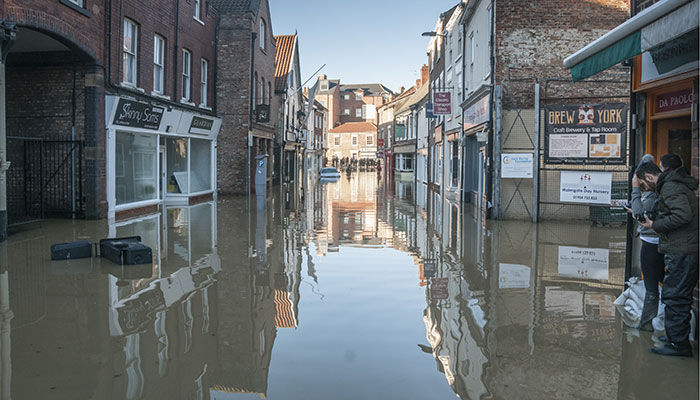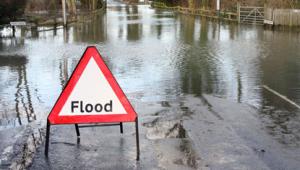
Image © Shutterstock
The District Councils’ Network is urging the government to reform the funding mechanism for Internal Drainage Boards (IDBs), which are small public bodies that oversee flood management for over 1 million properties.
It says without a fair funding system in place, the burden of maintaining flood defences falls heavily on local councils, which may lead to cuts in other public services to balance their budgets.
Internal drainage boards have seen their costs rise by an average of 28% in the two years since 2022-23.
This is mainly due to higher energy and fuel prices, according to the DCN, but also increasingly extreme wet weather and wage increases.
Taxpayers in areas affected by flooding face a total bill this year of £49.94m through council tax and landowner levies.
Under the current system, district or unitary councils collect levies on behalf of the country’s 112 IDBs.
When special levy charges are agreed, they legally have to be paid by councils.
Due to restrictions on maximum council tax rises – capped at 2.99% or £5 on a Band D bill – councils cannot increase their total bills in line with the IDB’s extra costs.
Some of the hardest-hit areas include East Lindsey, where the levy has risen by 35% to £1.37m and Boston, which saw a 33% increase of £710,000.
Boston Borough Council’s drainage levy makes up 22% of its £12.8m annual budget and it collects £4.3m in council tax, of which 61% is allocated to the drainage levy.
The DCN and Local Government Association have suggested several solutions, including fully funding IDB costs through government support, removing the council tax cap, or legislating to separate IDB levies from council tax requirements.
Sam Chapman-Allen, chairman of the District Councils’ Network, said: “It is only by properly funding flood prevention that defences can be maintained over vast swathes of the country and we avoid catastrophic flooding threatening life and livelihood.
“Internal Drainage Authorities have little option but to pass their higher costs onto councils – and in response councils have no choice but to further cut back on the local services which are vital for supporting local communities and growing local economies.
“We urge ministers to work with us to ensure those living in areas at risk of flooding are not unfairly penalised through the form of higher tax bills and a reduction in the services upon which we all depend.”
Paul Redgate, chairman of the Local Government Association Special Interest Group for Internal Drainage Board Levies and deputy leader of South Holland District Council, said: “The funding challenges for Internal Drainage Boards cannot be underestimated – the funding mechanism has progressively impacted our councils since 2013 and the challenge has intensified dramatically in the last two years.
“The embedded cost is one that our councils simply can no longer afford. Councils are already in a precarious position on the services they can afford to provide and have difficult decisions to come.”
Innes Thomson, the chief executive of the Association of Drainage Authorities, said: “Internal Drainage Boards are working as hard as they can to keep costs under control whilst providing essential water level and flood risk management services to local communities, businesses and the environment.
“The current special levy payments process, which has worked well in the past, is now clearly not working, with local councils bearing the consequences when they can least afford to.”











